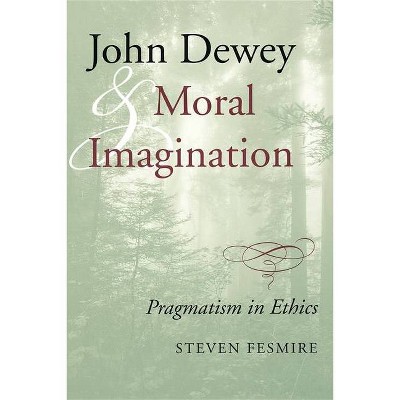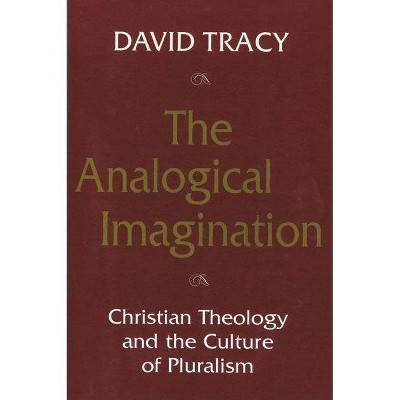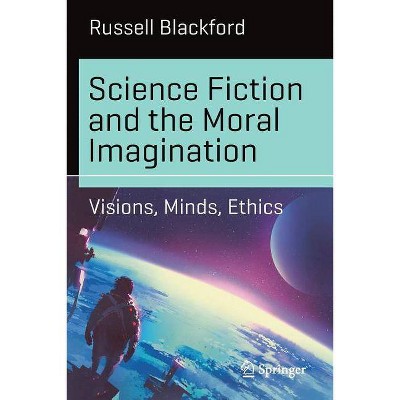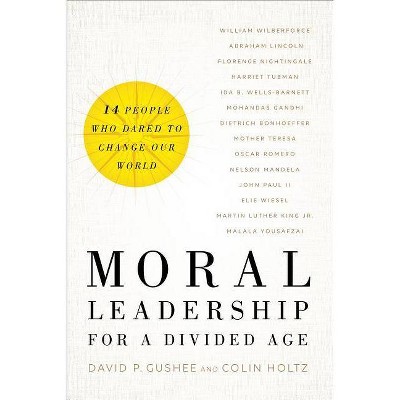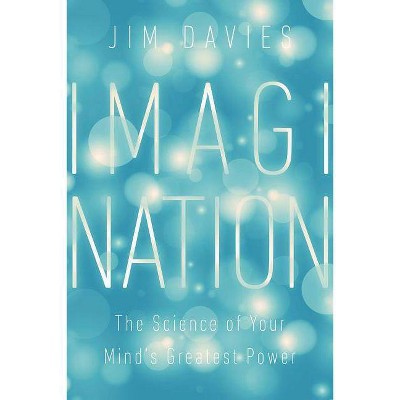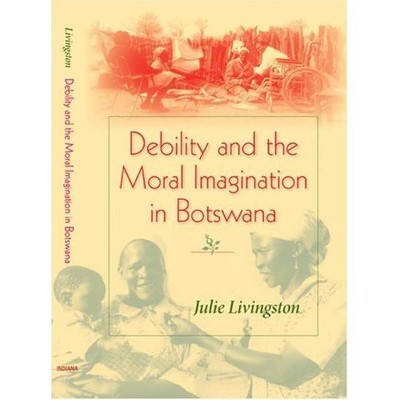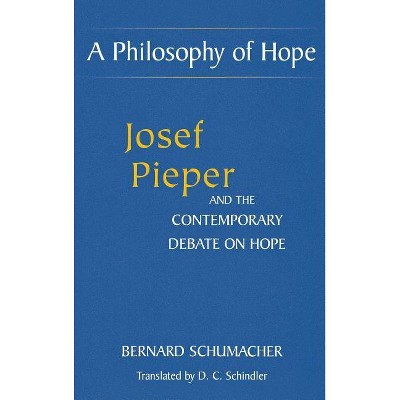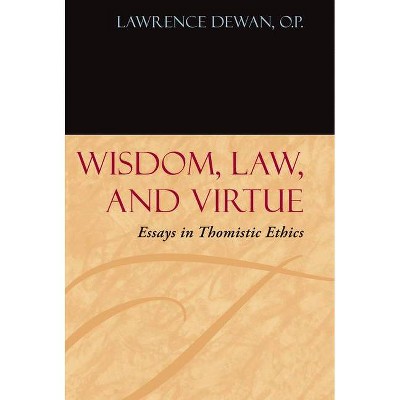Moral Imagination - by David Bromwich (Hardcover)
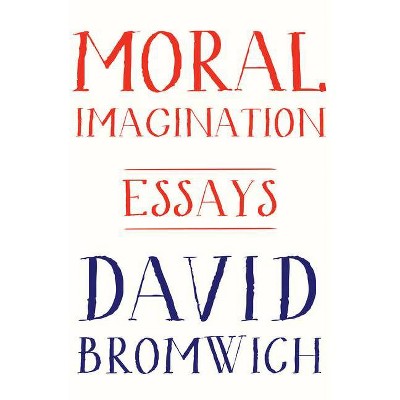
Similar Products
Products of same category from the store
AllProduct info
<p/><br></br><p><b> About the Book </b></p></br></br>"Spanning many historical and literary contexts, Moral Imagination brings together a dozen recent essays by one of America's premier cultural critics. David Bromwich explores the importance of imagination and sympathy to suggest how these faculties may illuminate the motives of human action and the reality of justice. These wide-ranging essays address thinkers and topics from Gandhi and Martin Luther King on nonviolent resistance, to the dangers of identity politics, to the psychology of the heroes of classic American literature. Bromwich demonstrates that moral imagination allows us to judge the right and wrong of actions apart from any benefit to ourselves, and he argues that this ability is an innate individual strength, rather than a socially conditioned habit. Political topics addressed here include Edmund Burke and Richard Price's efforts to define patriotism in the first year of the French Revolution, Abraham Lincoln's principled work of persuasion against slavery in the 1850s, the erosion of privacy in America under the influence of social media, and the use of euphemism to shade and anesthetize reactions to the global war on terror. Throughout, Bromwich considers the relationship between language and power, and the insights language may offer into the corruptions of power.Moral Imagination captures the singular voice of one of the most forceful thinkers working in America today"--<p/><br></br><p><b> Book Synopsis </b></p></br></br><p><b>Compelling essays from one of today's most esteemed cultural critics</b> <p/>Spanning many historical and literary contexts, <i>Moral Imagination</i> brings together a dozen recent essays by one of America's premier cultural critics. David Bromwich explores the importance of imagination and sympathy to suggest how these faculties may illuminate the motives of human action and the reality of justice. These wide-ranging essays address thinkers and topics from Gandhi and Martin Luther King on nonviolent resistance, to the dangers of identity politics, to the psychology of the heroes of classic American literature. <p/>Bromwich demonstrates that moral imagination allows us to judge the right and wrong of actions apart from any benefit to ourselves, and he argues that this ability is an innate individual strength, rather than a socially conditioned habit. Political topics addressed here include Edmund Burke and Richard Price's efforts to define patriotism in the first year of the French Revolution, Abraham Lincoln's principled work of persuasion against slavery in the 1850s, the erosion of privacy in America under the influence of social media, and the use of euphemism to shade and anesthetize reactions to the global war on terror. Throughout, Bromwich considers the relationship between language and power, and the insights language may offer into the corruptions of power. <p/><i>Moral Imagination</i> captures the singular voice of one of the most forceful thinkers working in America today.</p><p/><br></br><p><b> From the Back Cover </b></p></br></br><p>"David Bromwich is the most penetrating cultural critic in contemporary America. No one writes more shrewdly or eloquently about the pathologies of our public discourse. His essays are grounded in a firm grasp of modern intellectual history, but he wears his learning lightly. <i>Moral Imagination</i> reveals Bromwich's extraordinary combination of aesthetic elegance and ethical seriousness, as he dissects the insidious alliance of identity politics, publicity culture, and imperial fantasy--even while he reminds us of the forgotten strengths of our own political tradition. This is a book to treasure for its prose as well as for the power of its insights."<b>--Jackson Lears, author of <i>Rebirth of a Nation</i></b></p><p>"If multiculturalism were to shed its aspirations to mere correctness, if it were to get an elaboration that kept faith with the liberal vitalities of individual conscience and fulfillment, it would need to give moral imagination a more central role. That is the integration that David Bromwich seeks to attain in these essays as he shrewdly and eloquently gazes upon the past and present of American politics, the speeches and actions of figures ranging from Burke through Lincoln to King and Gandhi, and the prose and poetry of Wordsworth and Dickinson, Woolf and Whitman, and Emerson and Thoreau. Politics is made a loftier subject by such a humane literary scrutiny, even as literature is made more deeply central to our thinking lives."<b>--Akeel Bilgrami, Columbia University</b></p><p>"David Bromwich is one of the most incisive writers in America today. In his rapid, straightforward, and convincing style, he has written an intellectually powerful and morally compelling book, one that is not only urgently needed in the current climate but also has permanent value."<b>--Edward Mendelson, author of <i>The Things That Matter</i></b></p><p>"For several decades, David Bromwich has stood out among American critics as one of the most daring and knowledgeable challengers of received opinion and orthodoxies. This fresh and timely selection of essays effectively conveys the values which inform Bromwich's provocative cultural and political criticism, and will introduce his bold and cogent moral imagination to a wide readership."<b>--Margery Sabin, Wellesley College</b></p><p/><br></br><p><b> Review Quotes </b></p></br></br><br><i>Moral Imagination</i> brings together a dozen pieces published over the past twenty years in which [Bromwich] mostly explores the minds of people he admires. There is a particularly fine discussion of Lincoln and the constitutional necessity of the Civil War. There are also spirited attacks on the culture of celebrity and on the chicanery of Dick Cheney, which will have most readers whooping.<b>---Ferdinand Mount, <i>London Review of Books</i></b><br><br><i>Moral Imagination</i> is an important book. . . . [T]he patient reader will be well rewarded by the author's many insights into some of our nation's most pressing concerns.<b>---Walter G. Moss, <i>History News Network</i></b><br><br>[A] rich and memorable book. . . . Bromwich appears here in his well-established role as a public intellectual, as civilized as he is trenchant, observing with a mixture of dark wit and moral exasperation diverse aspects of the contemporary American scene. He has a good essay, both horrifying and funny, on the destruction of privacy in the modern United States; a remarkable essay on the psychopathology of political ambition; a fine piece questioning 'cultural identity' as a liberal shibboleth.<b>---Seamus Perry, <i>Times Literary Supplement</i></b><br><br>A historically informed examination of moral imagination and human sympathy, as seen through the lives of such figures as Edmund Burke, Mohandas K. Gandhi and the Rev. Dr. Martin Luther King Jr.<b>---Sewell Chan, <i>New York Times</i></b><br><br>Bromwich's book of essays is rich, well-cooked and a most satisfying dish.<b>---Bob Lane, <i>Metapsychology Online Reviews</i></b><br><br>One of The Times Higher Education Supplement's Books of the Year 2014, chosen by Jane Shaw<br><br>[T]hey shed much light on the frame of mind in which Bromwich approached the ambiguous figure of Burke in his biography, and even more on how Bromwich is relevant to the politics of our own times. . . . Those who read these essays alongside Bromwich's account of Burke's intellectual and political career will find their eye caught by three topics, all with Burkean overtones, deeply relevant to the present, and handled with Bromwich's characteristic sharpness. . . . Bromwich is particularly sharp on the way government spokesmen wrap the realities of massacre, torture, and gratuitous cruelty in euphemism. . . . The central essays of Bromwich's book are more meditative, and none the worse for it. . . . The final chapter, 'Comments on Perpetual War, ' displays Bromwich's skills as a critic in the tradition of Hazlitt and Orwell.<b>---Alan Ryan, <i>New York Review of Books</i></b><br><br>Bibliophiles, scholars and concerned citizens--all will find provocation and enlightenment here.-- "Kirkus Reviews"<br><br>Bromwich as a stylist belongs to the older, better class. . . . [<i>Moral Imagination</i>] is clearly a product of . . . bracing self-reflection.<b>---Helen Andrews, <i>Books & Culture</i></b><br><br>Bromwich delivers a probing and incisive collection of essays about culture, politics, imagination, and the war on terror. . . . <i>Moral Imagination</i> is an eloquent, demanding, and fiercely polemical work likely to appeal most to independent-minded readers and scholars alike.<b>---Lee Polevoi, <i>Foreword Reviews</i></b><br><br>In this collection of essays, Bromwich eschews identity politics and multiculturalism from a 'left' perspective, preferring instead the concept he articulates with the book's title: 'moral imagination.'. . . These essays are demanding but well worth the effort.-- "Choice"<br><br>Shortlisted for the 2015 PEN/Diamonstein-Spielvogel Award for the Art of the Essay, Pen American Center<br><p/><br></br><p><b> About the Author </b></p></br></br><b>David Bromwich</b> is Sterling Professor of English at Yale University. His many books include <i>A Choice of Inheritance</i>, a finalist for the National Book Critics Circle Award in Criticism, and <i>Skeptical Music</i>, winner of the PEN/Diamonstein-Spielvogel Award for the Art of the Essay.
Price History
Price Archive shows prices from various stores, lets you see history and find the cheapest. There is no actual sale on the website. For all support, inquiry and suggestion messagescommunication@pricearchive.us

